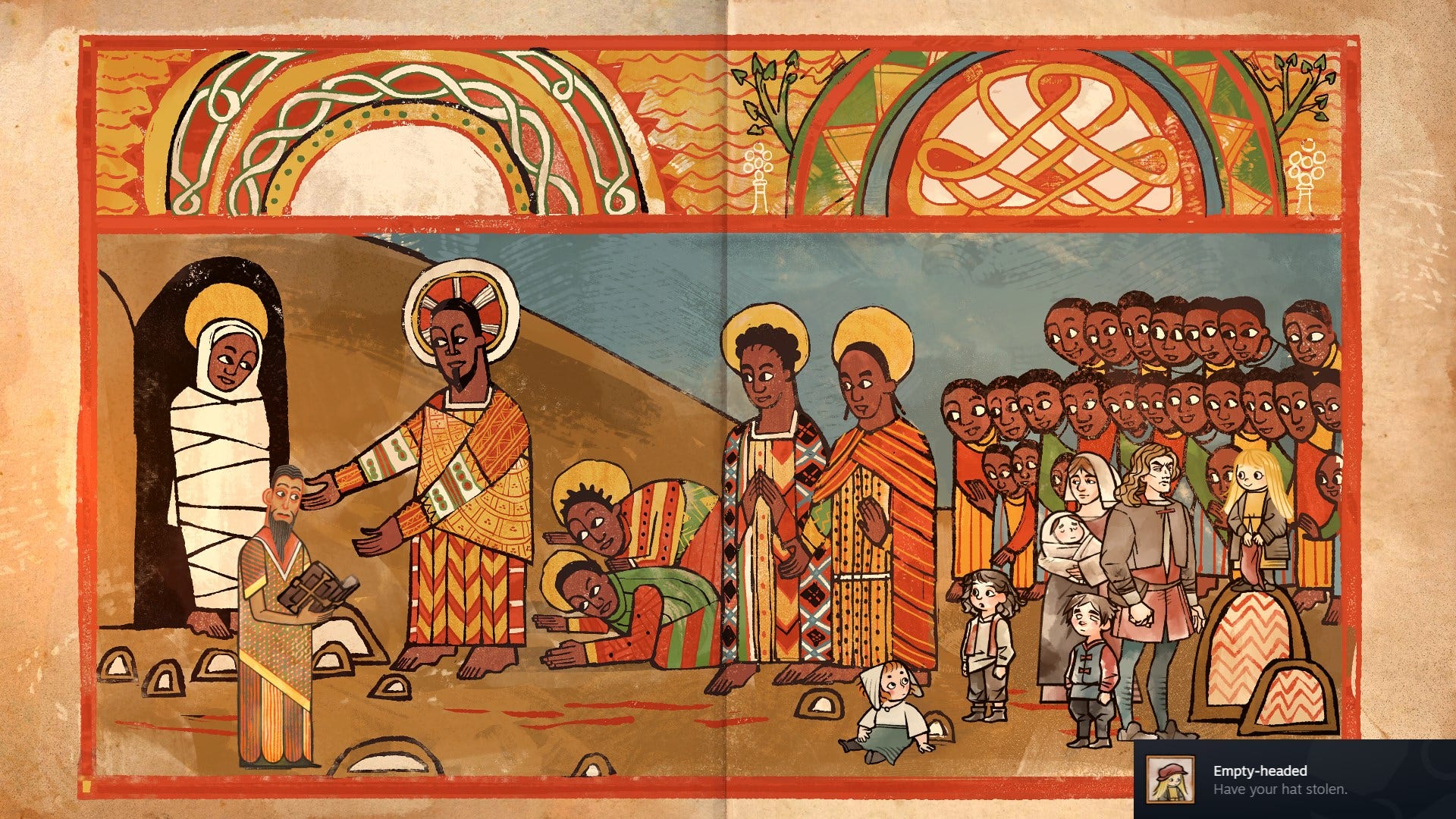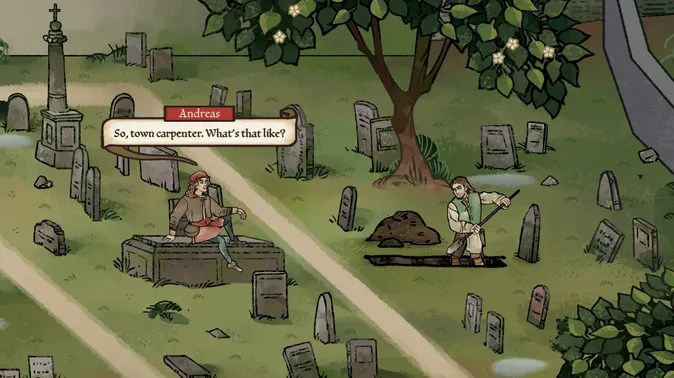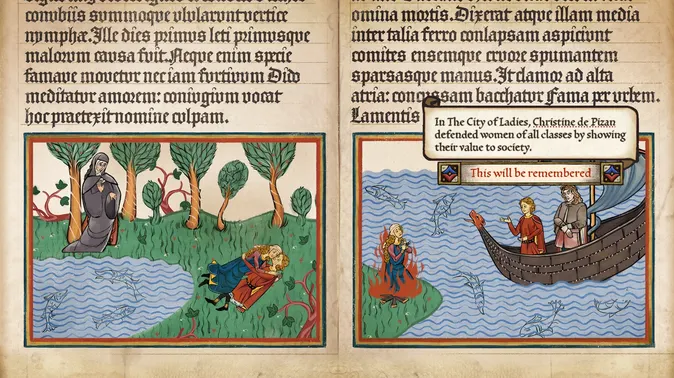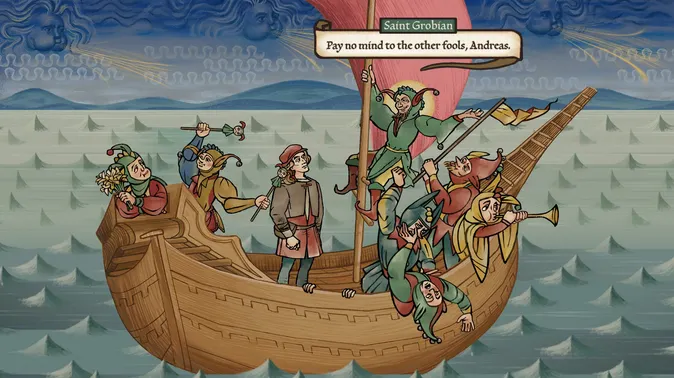Finished Pentiment
6 12月 2023

i've been interested in the game ever since people praised its focus on medieval monastic orders. in my spare time, i enjoy reading about medieval europe history and its legends (an alternate timeline, i would always lament, would be me becoming a medievalist). so this game was pretty right up my alley.
what i didn't expect was a strange game where you solve a series of murder mysteries in tassing, a small town in the holy roman empire. the reformation is in the background. everyday people are struggling to make ends meet because the abbot is kind of a dick. and you're some artist talking to people about the meaning of theology.

the best parts of the game have little to do with the overarching mysteries. it's all about talking to a wide cast of characters about their daily routine, especially during lunch and supper. you get a distinct feel for the social classes of each household and even learn some juicy gossip along the way. i'm "fond" of the patriarchal farmer families and the squabbles between the monks; they are petty and even misogynistic at times, but you also know where they are coming from because the situation is pretty dire.
i'm more lukewarm on the mysteries and the choice system. due to how the overarching mystery is structured, all "solutions" are validated and they work more as a glorified Consequences Matter choice. the game also uses skill checks and missable content to ensure replayability, but i find them pretty arbitrary at best; it's hard to distinguish which dialog is a skill check and how to prepare for it. it's clearly intentional because you are supposed to live with the consequences you make. however, i find that they're pretty abrupt for a mystery game because it's not at all obvious what is new dialog in the game and it's already irritating that you're just going back and forth this giant map of tassing to find out what's up -- it's shocking when i accidentally stumbled upon a skill check that i wasn't prepared for.

and i'm not sure if mysteries are the way to go for this kind of game, though i think it's one way to hook a player into the narrative. the game reminds me of the strengths and weaknesses of 1893: A World's Fair Mystery where the mystery doesn't really matter but every historical detail does. i actually wished pentiment had more conversations and exploration especially in the final act. indeed, i wanted something like umberto eco's Name of the Rose where the book is secretly a textbook on medieval semiotics...

that said, the game is very enjoyable. it's awesome to stumble upon some salacious details in this game and the medieval world felt very fleshed out. it's a visually stunning game, capturing the "flat" dimensions of medieval art without compromising visibility. i'd definitely recommend it if you're interested in historical tourism and manuscripts. it's a feast for the eyes.